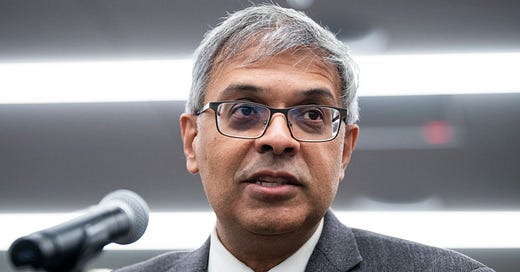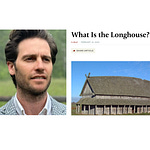Dr. Jay Bhattacharya is a professor of medicine, economics, and health research policy at Stanford University. He is also one of the plaintiffs in the Missouri v. Biden case and is suing the federal government for coordinating with social media services to censor users.
Yesterday, Public published a story containing previously unreleased emails and Slack messages from the authors of “The Proximal Origin of SARS-CoV-2,” the pivotal paper in Nature Medicine that established a “scientific consensus” around natural origin. On their Slack channel, the authors of the paper were still considering the possibility of a lab leak a full month after their paper ruled out any “laboratory-based scenario.” While proponents of the lab leak hypothesis were censored and derided as “conspiracy theorists,” the architects of the natural origin narrative were privately sharing suspicions and concerns, and working to actively mislead the public and the national media.
Bhattacharya’s story reveals another example of the kind of censorship and disinformation campaigns we saw from the public health establishment during Covid.
Over the past three and a half years, Bhattacharya has emerged as an anti-Fauci figure: a public health expert who vigorously defends open debate, listens to scientists he disagrees with, and considers the impact of policies on every member of society.
I spoke with Bhattacharya after a federal judge granted an injunction in the Missouri v. Biden lawsuit, preventing government agencies from meeting with tech companies to request removal of protected speech. (After this interview, a 5th circuit appeals court placed a stay on the injunction.)
In its appeal, the Biden administration claimed that the public would be endangered if government agencies could not compel social media companies to censor content. “The courts need to reject that idea out of hand,” Bhattacharya said. “It's absolute nonsense. If the federal government needs the right to violate the First Amendment in order to keep the public safe, then there's something wrong with the administration.”
In October 2020, Bhattacharya wrote the Great Barrington Declaration with Suentra Gupta of Oxford University and Martin Kulldorf of Harvard University. The declaration called for a focused protection model instead of harsh lockdowns. Since then, he has experienced repeated censorship on social media platforms. YouTube, for instance, removed a video of Bhattacharya explaining why children should not be mandated to wear masks. And in 2021, Twitter placed Bhattacharya on a trends blacklist to limit the reach of his Tweets.
Bhattacharya would later discover that top government officials were also targeting him. In an email obtained through a Freedom of Information Act request, Francis Collins, then-Director of the National Institute of Health (NIH), called Bhattacharya, Gupta, and Kulldorf “fringe epidemiologists.”
Writing to Dr. Anthony Fauci, then-head of the National Institute for Allergies and Infectious Diseases (NIAID), Collins called for “a quick and devastating takedown” of the Great Barrington Declaration.
Fauci later sent Collins articles in Wired and The Nation that harshly criticized the declaration. Yet when Fauci was deposed in the Missouri v. Biden case he denied even knowing what the Great Barrington Declaration was.
“I don't care to be personally maligned, but I think that's not the most important thing to me,” said Bhattacharya about Fauci’s “takedown” attempt and his subsequent denial. “The key thing is that this is a part of a pattern of his.”
Fauci, Bhattacharya explained, “has this vast power over the reputations of scientists as the head of NIAID,” and he has repeatedly used his power to destroy the reputations of scientists who disagree with him. “It's an abuse of power more than anything else.”
















